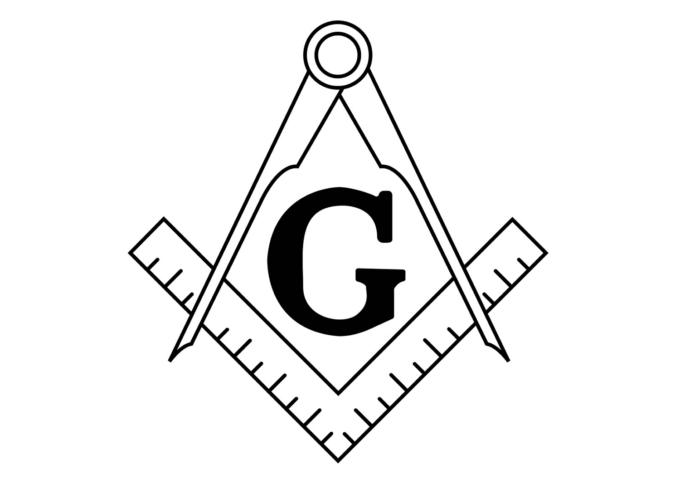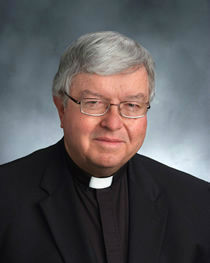
Faith
The reality, though, is that Masonry is at heart a naturalistic religion whose basic tenets are incompatible with Catholic faith and practice.

Doyle
Q. Recently, a friend asked me what the difference was between the Knights of Columbus and the Masons, and I didn't really know what to tell her. I've read about the good works done by each of these organizations, and we were wondering whether a Catholic gentleman can belong to both. (Please respond in your column, because I'm sure that others may have the same question.) (Cumming, Georgia)
A. The Knights of Columbus is an international organization of Catholic men whose chief work involves helping those in need. Their charitable donations total nearly $2 million annually, and they engage in joint projects with such organizations as Special Olympics and Habitat for Humanity.
Freemasonry is a fraternal society that traces its origin to medieval associations of stonemasons; in the U.S., there are grand lodges in every state, with a total membership of about 1.2 million in the U.S. Masons, too, involve themselves in a variety of charitable works, and no doubt many Americans view Masonry primarily as a social and philanthropic fraternity.
The reality, though, is that Masonry is at heart a naturalistic religion whose basic tenets are incompatible with Catholic faith and practice. (Pope Leo XIII said in 1884 that Masonry had as its fundamental doctrine "that human nature and human reason ought in all things be mistress and guide" and denied "that anything has been taught by God.")
The Vatican's Congregation for the Doctrine of the Faith declared in 1983 that "the church's negative judgment in regard to Masonic associations remain unchanged" and that "the faithful who enroll in Masonic associations are in a state of grave sin and may not receive holy Communion."
(In 1985, a report by historian William J. Whalen of Purdue University given to the U.S. bishops' Pastoral Research and Practice Committee said that Masonry "honors Jesus Christ as it honors Socrates, Buddha and Muhammed," and that Masonry "cannot acknowledge any special spiritual claims by Jesus, since this would violate the basis of Freemasonry," and that "Catholics in the United States and elsewhere may not be Freemasons.")
Q. Growing up in our family, God always came first. Our parents taught us to love and respect the Eucharist, especially when the Blessed Sacrament was exposed on the altar. (We would genuflect and bow.)
Our parish church now exposes the Eucharist before Sunday Mass. I am shocked to see people (young and old) come into Mass, plop themselves down in the pew and whip out their cellphones. Then they begin to laugh and text -- without, it seems, so much as a glance at the altar.
Can't people forget their phones and their friends for just one hour and reflect on just why they are there and whom they have come to worship? And why doesn't our priest ever comment about this? (Leeds, New York)
A. I am grateful for your letter because it stands as a valuable reminder of the need for reverence in what is clearly a sacred space. The General Instruction of the Roman Missal highlights the importance of that reverence:
"Even before the celebration itself, it is a praiseworthy practice for silence to be observed in the church, in the sacristy, in the vesting room and in adjacent areas, so that all may dispose themselves to carry out the sacred celebration in a devout and fitting manner" (No. 45).
The practice of exposing the Blessed Sacrament in a monstrance on the altar has a long history and serves well to promote devotion to Jesus present in the Eucharist.
The size and layout of a church may help in determining whether regular exposition before Sunday Mass is a wise practice. Many newer churches have a generous gathering area (lobby) where parishioners can greet one another upon arriving for Mass.
Doors can be closed to separate that area from the worship space -- as an indication that all conversation should cease once one enters the church proper, especially if the Eucharist is exposed. In smaller rural churches, however, there is often no gathering area at all and one enters directly into the worship space.
It is a natural instinct, and a good thing, for parishioners to want to welcome one another warmly and catch up on their lives -- and it is often a sign of a parish's vitality that people genuinely enjoy socializing before and after the Sunday Eucharist.
In such a setting, it might be better not to expose the Blessed Sacrament on the altar before Mass; perhaps, instead, an announcement could be made shortly before Mass that the next few minutes will be spent in silent preparation for the sacred celebration.
(And yes, I do think that your congregation needs a reminder from the priest that the use of cellphones is never proper in church -- whether to speak or to text.)
- - -
Questions may be sent to Father Kenneth Doyle at askfatherdoyle@gmail.com and 30 Columbia Circle Dr. Albany, New York 12203.
- Father Kenneth Doyle is a columnist for Catholic News Service
Recent articles in the Faith & Family section
-
The future of Ordinary TimeLucia A. Silecchia
-
If most of us go to purgatory at death, are Catholics 'saved?'Jenna Marie Cooper
-
Beyond the parishFather Robert M. O'Grady
-
Can you hear the beat of the drum calling the community to Mass? It's the invitation to the banquet!Maureen Crowley Heil
-
Scripture Reflection for Oct. 20, 2024, Twenty-Ninth Sunday in Ordinary TimeFather Joshua J. Whitfield


















